Thompson Rivers University
Arts Cohort Program
Qéq’llemwilc / Becoming Braided
TRU Faculty of Arts

Welcome !
TRU’s Arts Cohort is a specialized program designed exclusively for first-year Bachelor of Arts students. It’s not just a schedule — it’s a community.
Applause for making it to Thompson Rivers University (TRU)! Starting university is both thrilling and a bit overwhelming, but don’t worry—we’ve got your back.
As an Arts Cohort member, you’ll join like-minded peers and journey together through your first year at TRU, taking six core courses that lay the foundation for your Arts degree.
A convenient timetable for a balanced life – An ideal blend of academics and social experiences
The Arts Cohort offers first-year TRU students a perfect blend of structure and flexibility, providing dynamic learning experiences and meaningful social connections. You’ll take six core courses that fulfill graduation requirements and help you foster connections with your peers and instructors.
For Fall 2025 and Winter 2026, choose from two course clusters, each offering a well-rounded mix of subjects to match your interests and goals.
Find your fit and make your first year unforgettable!
Course Options:
| Semester | Arts Cohort Cluster 1 (Mondays & Wednesdays) |
|---|---|
| Fall 2025 | STSS 1010 – Academic Skills: An Introduction to Writing, Research, Studying, and University Life |
| GEOG 1000 – Planet Earth: An Introduction to Earth System Science | |
| FILM 2200 – Introduction to Film Studies: 1938-Present | |
| Winter 2026 | PHIL 1010 – Introduction to Philosophy: Great Thinkers: Ancient to Enlightenment |
| SOCI 1210 – Introduction to Sociology II | |
| HIST 1400 – Queer Activism |
| Semester | Arts Cohort Cluster 2 (Tuesdays & Thursdays) |
|---|---|
| Fall 2025 | ANTH 1210 – Introduction to Cultural Anthropology |
| PSYC 1110 – Introduction to Psychology | |
| POLI 1210 – Introduction to Contemporary Politics | |
| Winter 2026 | THTR 1000 – Theatre Appreciation: From Page to Stage |
| PHIL 1110 – Introduction to Critical Thinking | |
| ENGL 1100 – Introduction to University Writing |
Join the Arts Cohort!
Seat are limited and filled on a first-come, first-served basis. Click the link below to join the Arts Cohort for Fall 2025- Winter 2026!
Need more information? Email us: artscohort@tru.ca.
Connect, Discover, Share
Meet Your Instructors
Get to know your passionate faculty members and what makes them tick.
Fall Semester
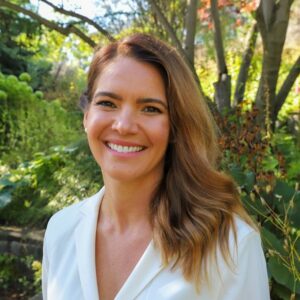
Jenna Goddard
Courses taught: STSS 1010: Academic Success Skills: An Introduction to Writing, Research, Studying, and University Life In and Outside the Classroom
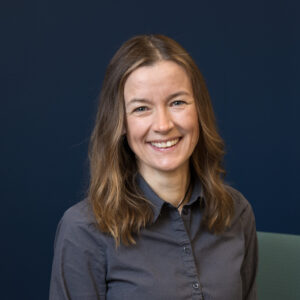
Crystal Huscroft
Courses taught: GEOG 1000 Lecture: Planet Earth: An Introduction to Earth System Science
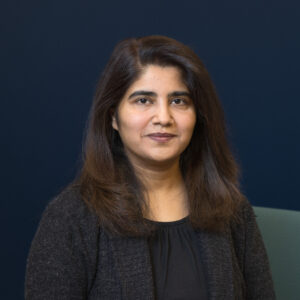
Dr. Gul-e-Rana Mufti
Courses taught: PSYC 1110: Introduction to Psychology 1
Hello everyone, and welcome to Introduction to Psychology I!
My name is Gul-e-Rana Mufti, and I am a faculty member in Psychology. I’m very excited to be part of this Arts Cohort program together with you. My background is in health psychology and applied behavior analysis, and I’ve always been fascinated by the many ways people think, feel, and act. I’m excited to share that curiosity with you and to learn alongside you this semester.
In this course, you’ll begin building a foundation in psychology. We’ll explore the history of psychology and how it developed into a modern science. You’ll also learn about the research methods psychologists use to study human behavior, and we’ll practice critical thinking skills, which are valuable both in psychology and in your wider studies.
We’ll also cover some of the key areas of psychology, including biological bases of behavior, consciousness, sensation and perception, learning, and memory. These topics will help you gain a better understanding of how people experience the world, process information, and adjust their behavior.
I’m excited to work with you, to hear your ideas, and to support your learning throughout the semester. I encourage you to stay curious, ask questions, and connect what we discuss to your own experiences. By the end of the course, my hope is that you will see both human behavior and yourself from new and meaningful perspectives.
I look forward to meeting you soon, and I’m excited to begin this journey together. Welcome to the course!

Dr. Humayun Kabir
Courses taught: ANTH 1210: Introduction to Cultural Anthropology
Welcome to the Arts Cohort Program!
My name is Humayun Kabir (please call me Humayun), and I’ll be teaching ANTH 1210: Introduction to Cultural Anthropology.
As a cultural anthropologist, I research communities in modern South Asia, with a particular focus on Bangladeshi society. My work explores themes such as religion and education, identity politics, religion and nationalism, religion and gender, and religion and transnationalism.
Cultural anthropology is one of the four subfields of anthropology—often referred to as the discipline’s “sacred bundles” (the others are linguistic anthropology, biological anthropology, and archaeology). In this introductory course, we will explore a central question: What makes us human? Closely tied to this is another: Why are humans so culturally diverse?
Through cross-cultural comparisons, we will examine how human lives are shaped by cultural “scripts.” Along the way, you’ll reflect on your own cultural assumptions and develop an appreciation for diversity from both global and local perspectives. By the end of the course, you will gain a critical understanding of culture and power and recognize the importance of valuing cultural diversity and diverse ways of knowing the world on equal terms.
My role is to facilitate your learning and to help you build skills such as cultural intelligence, critical thinking, cultural empathy, and intercultural awareness, to name a few among others—skills that will be valuable in both your professional as well as personal life.
I’m excited to begin this journey with you and look forward to our conversations and learning together.
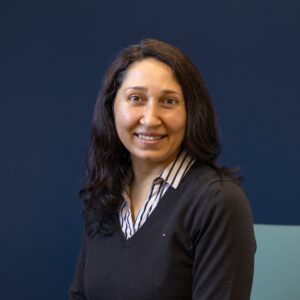
Dr. Saira Bano
Courses taught: POLI 1210: Introduction to Contemporary Politics
Welcome to POLI 1210-01: Introduction to Contemporary Politics. I am excited to begin this journey with you and explore the fascinating world of politics together. My research focuses on the intersection of domestic politics and foreign policy, and I am passionate about helping students understand how political decisions shape our world.
In this course, we will explore the key concepts, institutions, and processes that define political life. Together, we’ll examine how power operates, how governments function, and how political ideologies influence decision-making both locally and globally. Through lectures, discussions, and experiential activities, you will develop critical thinking skills and learn to analyze political issues from multiple perspectives.
Our goal is not only to study politics but also to connect theory to real-world events, deepening our understanding of the forces shaping contemporary society. I look forward to navigating these important ideas together.
Winter Semester
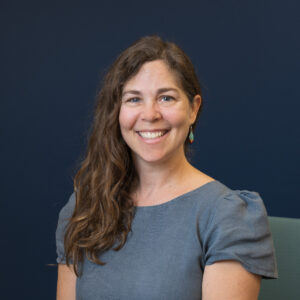
Dr. Jenna Woodrow
Courses taught: PHIL 1010: Introduction to Philosophy: Great Thinkers: Ancient to Enlightenment
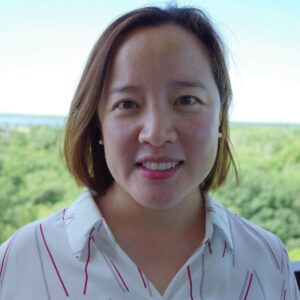
Dr. Ji Young Lee-An
Courses taught: SOCI 1210: Introduction to Sociology II
Hello Arts Cohort student members,
My name is Jiyoung Lee-An (Lee is my mother’s family name and An is my father’s family name. I have adopted both family names as part of the Korean feminist movement) and I am a faculty member in Sociology at TRU. I am pleased to be part of this very first Arts Cohort Project together with you. I will teach Introduction to Sociology II in the 2025 Winter semester. I came to Canada as an international student for my PhD in sociology, and now I am an immigrant living on the unceded, traditional lands of the Tk’emlúps te Secwépemc. I am living, learning and teaching on these unceded lands, with full awareness and respect of and support for Indigenous resistance and pathways to decolonization.
As a critical race feminist sociologist, in the course, I will introduce decolonial and anti-racist feminist sociological perspectives to understand and critically engage with the broader social structures of colonialism, capitalism, heteropatrichy and globalization in both Canadian and global societies. You will have an opportunity to delve into diverse sociological topics of gender, race, social class, dis/ability, work, education, technology, media, environment, etc. I place a high value on critical thinking, inclusive and communal learning and collaborative work. You will be invited to work with your peers in class and produce collective outcomes together.
Looking forward to meeting you soon!
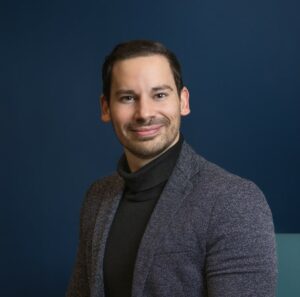
Dr. Nicholas Hrynyk (he/him)
Courses taught: HIST 1400: Queer Activism
Welcome to HIST/POLI 1400: Queer Activism! I am excited to embark on this journey with you. As an interdisciplinary historian trained in women’s and gender studies, queer studies, and social justice, my work is deeply rooted in exploring the complexities of identity and activism. My research spans various intersecting fields, including queer history, disability studies, feminist and gender studies, critical race studies, and visual culture.
In this course, we will engage with 2SLGBTQ+ activism from the 1950s onward, with a special emphasis on Canada. We will investigate how queer communities in North America are created and sustained through protest, alliance-building, symbols, and digital spaces. Additionally, we will navigate the historical and contemporary politics of “inclusion” within queer communities. You will engage with both formal and informal forms of queer activism and apply core principles learned to transformative social justice projects. Over the course of the semester, I will help you explain the evolution of queer activism as experienced from inside the movement. We will identify and explain the significance of catalysts and turning points such as HIV-AIDS and same-sex marriage in the evolution of queer activism. Additionally, we will describe and evaluate the impact of organizing strategies, such as law reform and pride parades, on the lived reality of 2SLGBTQ+ individuals and communities. Together, we will explore the intersection of queer activism with feminist and other social justice activism and describe how queer theory challenges common-sense ideas about gender, race, and sexuality.
You will evaluate the usefulness of personal narrative as an authoritative source of knowledge about queer activism and locate and assess local sources of information about queer activism. You will design and compose queer-positive messages and strategies to challenge homophobia and transphobia, defend the importance of coming out as a form of activism, and defend the importance of queer-friendly spaces such as 2SLGBTQ+ clubs on university campuses, gay-straight alliance clubs in secondary schools, and pride parades. Finally, you will assess your own internalized homophobia and transphobia, articulate the rationale for challenging these biases, and work cooperatively with others to create and present a group project.
As you can tell, my work is not just academic; it reflects my passion and commitment to understanding and advocating for the queer community. I look forward to sharing these insights and engaging in meaningful discussions with all of you throughout this course.
Warmest wishes, Dr. N. Hrynyk